Photographs: Amit Dave/Reuters. A K Bhattacharya
Why oil pricing is muddled in politics and populism
Image: Supporters of Bharatiya Janata Party pull a vehicle with ropes.Photographs: Reuters.
Thus, over and above a seven per cent increase in June, petrol prices went up again by over eight per cent in December and in January 2011 by over four per cent.
Why oil pricing is muddled in politics and populism
Image: An activist from the Communist Party of India (CPI) shouts slogans.Photographs: B Mathur/Reuters.
What happened subsequently, however, was an anti-climax. The international crude oil prices continued to rise even after January - and indeed by a sharper margin, but the oil marketing companies refrained from announcing any further price increase.
Why oil pricing is muddled in politics and populism
Image: BJP activists shout anti-government slogans during a protest against a recent hike.Photographs: Ajay Verma/Reuters.
The unstated explanation went as follows: Any further increase in petrol prices may adversely affect the electoral prospects of the Congress and its alliance partners in the Assembly elections to be held in Assam, West Bengal, Tamil Nadu, Puducherry and Kerala s in April-May.
Hence, defer any such price increase until the elections are over!
Why oil pricing is muddled in politics and populism
Image: A worker fills plastic containers with diesel at a fuel station in Kolkata.Photographs: Rupak De Chowdhuri/Reuters.
Clearly, this was not enough. Crude oil prices in this period had gone up by 41 per cent and even after the latest increase, the oil companies' under-recovery remained as high as Rs 5 for every litre of petrol they sold in the retail market.
Why oil pricing is muddled in politics and populism
Image: An employee fills a vehicle with petrol at a fuel station in Jammu.Photographs: Mukesh Gupta/Reuters.
The government has argued that it has decontrolled petrol prices and the decision to revise the prices lies with the oil marketing companies.
Why oil pricing is muddled in politics and populism
Image: An employee refills petrol from a tanker at a fuel station at Noida.Photographs: Parivartan Sharma/Reuters.
The problem, therefore, is not whether the government has actually decontrolled petrol prices or not. Even after diesel prices are decontrolled, the government may continue to influence the oil companies in a manner that it can dictate the extent and frequency of price revisions.
Why oil pricing is muddled in politics and populism
Image: An employee counts money at a fuel station in Kolkata.Photographs: Rupak De Chowdhuri/Reuters.
In practice, however, these companies would be free to do so only as long as they got the concurrence and approval of the ministry of petroleum and natural gas.
Why oil pricing is muddled in politics and populism
Image: Oil marketing companies are free to fix petrol prices.Photographs: Reuters.
In theory, the oil marketing companies are free to fix petrol prices, but in practice, they do need the approval of the ministry of petroleum and natural gas.
Why oil pricing is muddled in politics and populism
Image: LPG to cost more.Remember that the government is able to exercise influence over the petroleum product pricing decisions simply because it is also a majority shareholder in the state-controlled oil marketing companies.
Why oil pricing is muddled in politics and populism
Image: Reuters.Once that ownership pattern changes, the government will cease to exercise any influence over the companies and chances of implementing policy reforms will improve dramatically.
Why oil pricing is muddled in politics and populism
Image: Reuters.Oil pricing freedom as an idea can succeed only if the ownership of the key oil refiners (read the public sector oil companies) ceases to be government-dominated.
Whether the UPA government is ideologically prepared to undertake such deep and bold reforms is of course a big question mark, but until such time clarity emerges on this key reform area, oil pricing will continue to remain muddled in politics and populism.

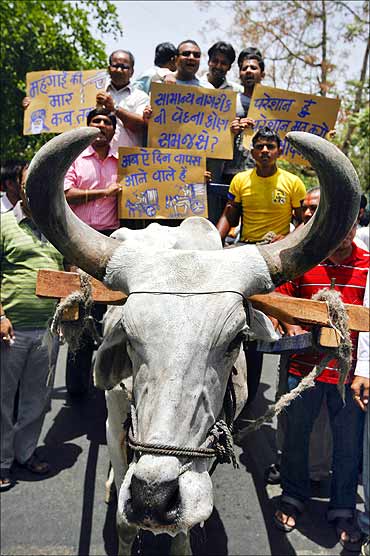
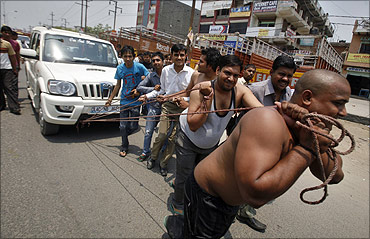
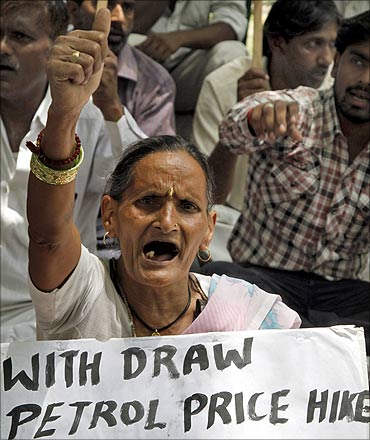
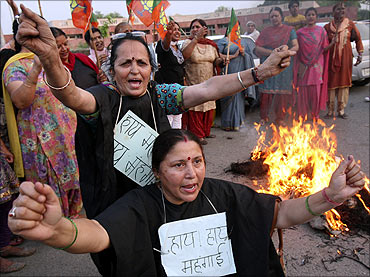

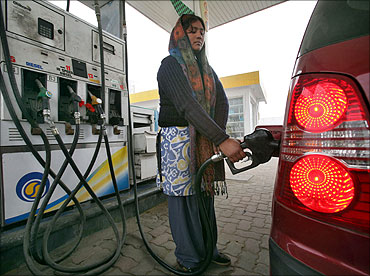
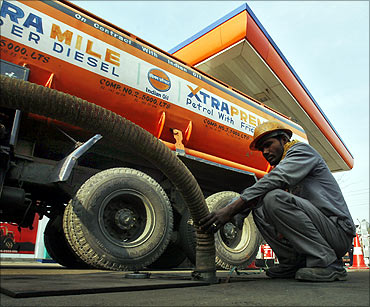
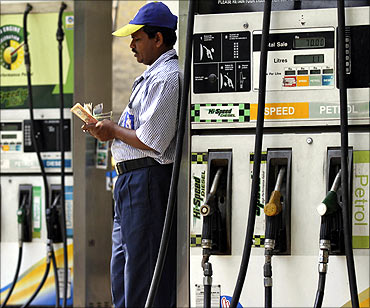
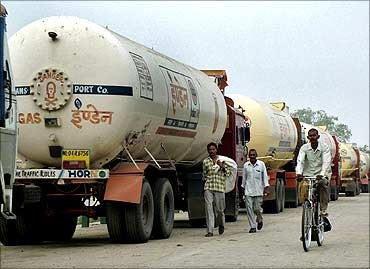
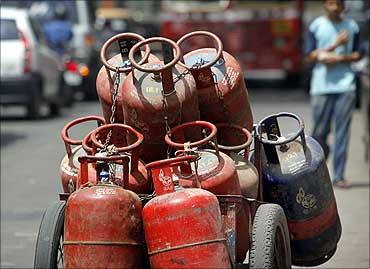
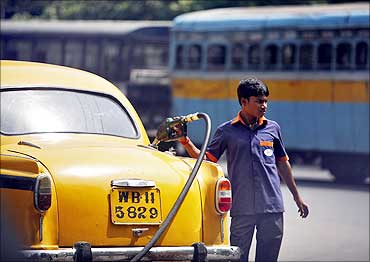
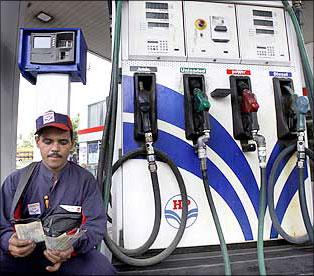

article